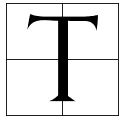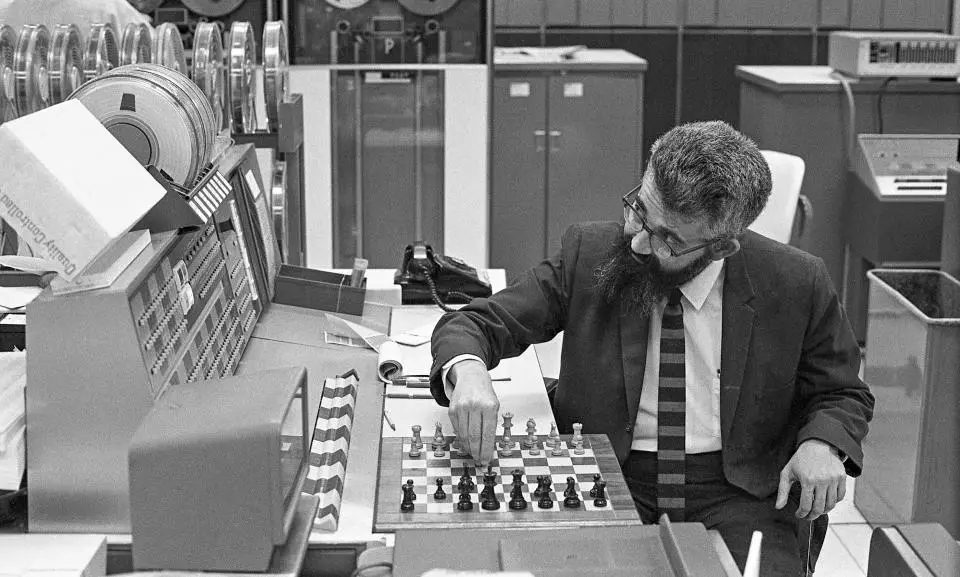 here are two ways to look at artificial intelligence (AI). Either it is a master or a servant. And there are two kinds of relationships that humanity employs with technology. Either it fears, is destroyed, and is overwhelmed by technological progress, or it dictates this progress, drives it forward, and uses it.
here are two ways to look at artificial intelligence (AI). Either it is a master or a servant. And there are two kinds of relationships that humanity employs with technology. Either it fears, is destroyed, and is overwhelmed by technological progress, or it dictates this progress, drives it forward, and uses it.
And then there are two major social constructs that keep the members of society in compliance with the prevailing ideology of life. These are religion and the state. However, with AI, technology has proven its place as a third constraining social factor. Humans created AI to achieve impossible capabilities, but to what end? That is the question everyone wants to know. But if we knew all the answers, being human would be half the fun. It would be – artificial and predictable.
In the dawn of AI taking over our repetitive, traditional, and popular professions such as news writing and reporting, insurance, retail, health, law, and the entire service sector, it is time to ask how on earth we survived from caveman to Davos Man. There was so much stress, hardship, and dirt that most people didn’t live longer than 40 years until the 20th century. And today we have overpopulated the planet with 8 billion people and the longest-reigning queen has just died at the age of 96.
The scientists call that progress. Should we now be afraid of AI, or is it rather that we simply don’t know who we are, and that is why religion, the state, and technology have always had great success in telling everyone what to do and how to live? Are we simply ignoring some essential human traits to establish the superiority of another alien pillar of human civilization, AI?
For the sake of the world, let’s take a fearless human look at AI’s greatest victories over humans and not feel like losers but winners who made it all possible.
The first game the AI won was Backgammon
Only one day after Luigi Villa had become Backgammon World Champion in Monte Carlo in 1979, he played against Hans J. Berliner’s computer program BKG 9.8 in front of 200 spectators for a $5,000 cash prize. Before the game, Paul Magriel, the former world backgammon champion who contributed expert knowledge to the programming of BKG 9.8, estimated that the program had a 35 to 40 percent chance of winning.
And although Villa played better, BKG 9.8 had the better dice, and Villa lost by a huge margin, 7:1. It was the first time a computer program had beaten a world champion in a board or card game. A new system for game-based comparison between AI and humans has been set up, but will not be used for another 17 years, when computers have reached their full potential and the world’s attention shifts to AI.
When the AI won at chess, we were horrified
In 1996, everyone watched the very first match between the computer Deep Blue (IBM) and the greatest chess player of all time, Gari Kasparov. Out of six games, Kasparov lost twice. The next year IBM Deep Blue improved and another match against Kasparov was scheduled.
In the first game, Deep Blue opened with a loss. In the second game, it made a bad accidental move which Kasparov interpreted as brilliant, resigned the second game, and played the third game without confidence and recklessly, giving Deep Blue another win. The audience was incredulous, Kasparov was shaken, and everyone felt that something had changed dramatically in our world.
The news was full of dystopian headlines, IBM shares rose, and a game-based competition between AI and humans has just resumed. Kasparov later said he was the first knowledge worker whose job was threatened by a machine.
When IBM’s Watson won Jeopardy, no one laughed
Watson was developed in 2005 with the sole aim of defeating 74-time Jeopardy winner Ken Jennings, but it wasn’t until 2011 that it got its chance. The competition lasted three days and included Jennings and 20-time winner Brad Rutter, who finished third after two matches.
Watson’s victory was majestic because it demonstrated for the first time the AI’s ability to learn the language and understand everyday English. And Jeopardy is full of slang, puns, and allusions, which made it the second game after chess that the IBM programmers were determined to conquer.
Jennings later wrote that after talking to IBM’s engineers he understood that Watson’s victory was in fact the victory of human intelligence and innovation using the same thought processes as humans, which was a remarkable milestone for AI.
When DeepMind beat seven Atari games, it was acquired by Google
DeepMind Technologies wanted to develop a general-purpose AI, which has a broad training field and represents the controversy with AI technology. To achieve this, they created a deep-learning model that doesn’t need to be redeveloped for each game but uses raw pixel data as input and learns from experience. Atari is a collection of classic games that engineers use to test the success of deep learning models.
In 2013, DeepMind beat seven Atari games and scored better than the best players. It did this by using only the inputs on the screen and being asked to maximize the score. In 2014, Google acquired Deep Mind technology, which today outperforms all 57 Atari games, although it is still not versatile enough.
When the AI won at Go, all of South Korea was devastated
When DeepMind moved to Google, it was given another challenge: to beat the ancient Chinese game Go, whose players are considered the smartest people in the world. The new superior AI AlphaGo was born. Although Go has simple rules, they fall into 2 * 10¹⁷⁰ number of different possibilities that the game can take at any time. This number exceeds the number of atoms in the universe.
From 2015 to 2017, AlphaGo defeated Fan Hui, the European Go champion, as well as several international champions, including Lee Sedol, one of the highest-ranked players of all time, who retired after losing 4 out of 5 games against Alpha Go.
AlphaZero and AlphaStar left little doubt about the future
AlphaGo was replaced by AlphaZero, whose idea was to master chess after nine hours of training, Go after 34, and Shogi (Japanese chess) after only two hours of self-training by playing only simulated games against oneself, without the examples of expert games.
AlphaZero then became AlphaStar with the aim of winning in the very complex real-time strategy game Starcraft. In 2019, AlphaStar was among the top 0.2 percent of human players. This performance showed that AI will soon be ready to take on a larger role in human society, encouraging Google to invest significantly in self-driving vehicles.
The 2022 Colorado State Fair gave the first prize to AI-generated artwork
The 150-year-old Colorado State Fair shocked everyone when the first prize in the digital art category went to video game designer Paul Allen and his painting generated by artificial intelligence. The controversial decision sparked an emotional debate between agitated and angry artists who refused to recognize Paul Allen’s work as art because he had used Midjourney, an AI program that converts text descriptions into images, even though he made this clear in his entry.
But other artists have interpreted this decision as further evidence that AI will wipe out art jobs and that artists will have no business in the future. Paul Allen disagrees and insists that it is not the AI that is behind the work, but he himself, the human being, who does all the specifying. Just like you do with a camera, which also had vociferous opponents among painters when it first appeared.
But That’s Not All
What about in 2017, when the AI Libratus beat four professional poker players simultaneously in a 20-day no-limit Texas Hold’em tournament in Pittsburgh, proving it was also good at psychology? Or when the French AI NooK defeated eight world bridge champions in Paris in 2022?
All these AI victories are due to human invention and human intelligence, indicating that we are ready for this stage of civilizational development, and even if we are afraid of the achievements of technology, AI, which lacks emotional intelligence, creativity, empathy, and original thinking, would perhaps be afraid of us if it were aware of our history. Just saying.

Writer and director who thinks different and does everything differently. Art enthusiast. Wandering and wondering. Until the end of meaning.
irena_curik@hotmail.com





